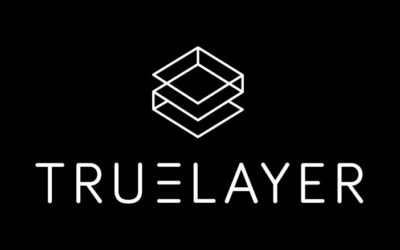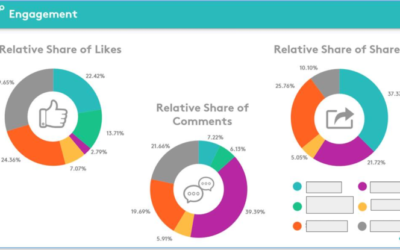Uber’s IPO prospects remain ‘extremely good’ despite CEO Travis Kalanick resigning, Deutsche Bank says
Uber’s IPO prospects remain ‘extremely good’ despite CEO Travis Kalanick resigning, Deutsche Bank says.
Uber’s prospect of executing an initial public offering (IPO) remains “extremely good” despite CEO Travis Kalanick resigning and management changes, a top Deutsche Bank corporate banking executive told CNBC on Wednesday.
Kalanick resigned on Tuesday after investors demanded he step aside amid a number of controversies at the ride-hailing service.
Still, as investors look at an exit for the near $70 billion business, an IPO will surely be in their minds.
Despite management changes and the resignation of Kalanick, Uber could still see good demand when it goes public, according to one analyst. “I think that the prospects of executing an IPO remain extremely good,” Alasdair Warren, head of the corporate and investment bank for EMEA at Deutsche Bank, told CNBC in a TV interview on Wednesday. “I’m not sure that, necessarily that the change of CEO or a change in management of any kind is going to change that.
My commentary is that as and when that business wants to come to market, there will be a very very strong demand for it, it’s going to obviously be a very significant transaction.” “That’s a very attractive theme behind which investors want to get,” Warren said.
Still, an IPO seems a long way away especially as Uber does not have a complete management team, it has lost key executives and has faced scandals from sexual harassment claims to an intellectual property lawsuit with Alphabet’s driverless car unit Waymo.
Startup Academy: How to fund your startup
I think these are all great options that entrepreneurs should consider when starting their business,” he said.
“I think it’s the best time ever to start a company,” he said.
I think we’ve innovated on certain platforms so it’s much easier to start a business, that’s number 1.
“Look at the stage of the company, how much money you need and the landscape of investors,” Ahmad said.
Both VCs were clear that entrepreneurs should know what they are getting into when they take VC funding.
As we develop a track record in VC, more money will be allocated to it,” Ahmad said.
Exits, Ahmad said, will take time and will not come easy.
Firas Raai, head of business and product development at ADIB, outlined six stages of business funding, starting with personal savings or one’s own salary in the early stages, moving on to friends and family, followed by angels, VCs and, finally, banks.
“Banks become interested when you start to make money,” explained Raai.
Beehive was able to raise around US $2.5 million in capital from individuals without recourse to an institution.
TrueLayer raises $3M Series A to provide fintech companies with easy access to bank APIs
TrueLayer raises $3M Series A to provide fintech companies with easy access to bank APIs.
The round was led by Anthemis Group, with participation from existing investor Connect Ventures, and will be used by TrueLayer to expand its team and increase coverage of supported banks before opening up beyond beta testers later this year.
The European Union’s Second Payment Services Directive (PSD2), due to be written into law by January 2018, will force banks operating within the EU to offer read and write access, so that, with your consent, third-party apps and services can access your bank account data, including being able to make and receive payments on your behalf.
Unsurprisingly, a plethora of fintech startups are already getting high on PSD2 fumes by building out a range of products ahead of time, from Personal Finance Manager apps (PFMs), credit and loans, to card-linked offers and cash-back, ready for when PSD2 legislation finally kicks in.
TrueLayer, on the other hand, is taking a picks ‘n’ shovels approach to what many predict will be a PSD2-driven fintech gold rush.
“We believe that PSD2 will be a once in a lifetime opportunity for startups to displace incumbent banks and financial service providers,” TrueLayer co-founder Francesco Simoneschi tells me.
“We want to provide developers with a simple, secure and universal API to access the bank infrastructure and enable the next wave of financial services”.
It is available in the U.K. and Simoneschi says TrueLayer will expand to other EU countries later in 2018.
“The API will start offering additional bank services beyond data, including payment initiation (an API to send wire transfers) and the full scope of the opportunities enabled by PSD2 and Open Banking,” he says.
Eventually — and once the startup has attained the appropriate PSD2-related licences from the U.K. regulator — Simoneschi hopes that TrueLayer will be able to act as an “umbrella license” and therefore the regulatory as well as technical gateway for fintech startups and other kinds of businesses to go in search of PSD2 gold.
In a potentially risky strategy, some U.S. startups are going for debt over VC funding
In a potentially risky strategy, some U.S. startups are going for debt over VC funding.
His New York-based startup doubled annual revenue in 2016 and is on track to break even in 2017.
Silicon Valley Bank’s loan-volume to venture-backed startups surged 19 per cent during the past year to US$1.1 billion for the quarter ending Sept. 30.
TriplePoint’s volume is up more than 25 per cent.
Western Technology Investment CEO Maurice Werdegar called volume “robust” and described the lending environment as “hyper-competitive.” Borrowing capital allows startups to postpone valuation negotiations that come with raising equity.
They require timely payments from all their companies, with interest that’s designed to provide the lender with a more predictable and less risky source of revenue than venture investing.
He says he didn’t consider tapping VCs again because another round would have diluted his shares too much.
The offers had interest rates ranging from nine per cent to 15 per cent over two to five years, and the terms protecting the lenders varied.
Driscoll passed on that, opting instead for cleaner terms for a US$14.25 million loan in October at an average rate of around 11 per cent from Wellington Financial and City National Bank.
So long as the terms are structured properly, it can be a good way to minimize dilution and build to the next funding round, he says.
CDSL initial public offer subscribed 7.55 times on Day 2
CDSL initial public offer subscribed 7.55 times on Day 2.
The initial public offering (IPO) of Central Depository Services (India) Ltd (CDSL) was oversubscribed 7.55 times on the second day of bidding on Tuesday, helped by strong investor response.
The IPO, to raise Rs 524 crore, received bids for 18,75,67,500 shares against the total issue size of 2,48,27,046 shares, data available with the NSE till 1915 hours showed.
The category reserved for qualified institutional buyers (QIBs) was oversubscribed 6.54 times, non institutional investors 3.36 times and retail investors 10.32 times.
CDSL on Friday raised Rs 154.07 crore from 15 anchor investors.
The price band for the share sale has been fixed at Rs 145-149.
Through the offer, which closes today, CDSL’s promoter and leading stock exchange BSE plans to sell 3.51 crore shares.
The book running lead managers to the offer are Haitong Securities India Pvt Ltd, IDBI Capital Markets and Securities Ltd and YES Securities (India) Ltd. CDSL is the second largest depository in the country.
Soldo, a London fintech startup that offers a multi-user spending account, raises $11M led by Accel
Soldo, a London fintech startup that offers a multi-user spending account, raises $11M led by Accel.
Soldo, the London-based fintech startup that offers a multi-user spending account, first launched for consumers and since tailored to businesses too, has raised $11 million in Series A funding.
Venture Capital firm Accel led the round, with participation from Connect Ventures, InReach Ventures, U-Start and R204 Partners.
In addition — and key to the startup’s vision — Soldo offers granular spending controls that are at the heart of its tech stack.
This allows for different expense criteria for each employee, contractor or spending department, with permissions set and all spending trackable centrally.
For example, cash limits can be set and companies can choose to block online payments, cashpoint withdrawals and foreign transactions.
This, the company claims, has the potential to significantly cut down on the administrative burden of company-wise expenditure tracking and the costs typically involved in doing so.
“Carlo is a world-class entrepreneur and has assembled a team that has worked with him building successful companies several times over.
Furthermore, De Rycker says that spend management is a massive headache for finance departments and employees, and that Soldo provides a win-win solution for both, particularly for the underserved SME market.
“It gives the finance department an increased level of control in managing spend at an individual level, and gives employees the necessary flexibility to do their jobs efficiently without the admin associated with using personal cards, submitting expenses or sharing a company card,” she says.
CNN to Make Its Video Startup Great Big Story a 24-Hour Streaming Network
CNN to Make Its Video Startup Great Big Story a 24-Hour Streaming Network.
CNN will invest $40 million over the next two years in Great Big Story, transforming the in-house social video startup into a 24-hour streaming channel.
Morse said he wants to create “live experiences,” like using drones or virtual reality to broadcast from a wildlife migration in the Serengeti or the bottom of a coal mine. “We consider it a brand that plays well across all sorts of platforms,” he said.
CNN’s investment in Great Big Story is the latest example of a fast-moving convergence in television, where traditional channels are pouring money into online startups to make shows for a younger, cord-cutting generation.
On Monday, Time Warner became the latest big media company to invest millions in making shows and buying ads on Snapchat.
Online media startups like BuzzFeed and Vice are also producing shows for TV, where the advertising market is much larger than in online video.
The company’s content reaches 30 million to 60 million people a week.
As part of the new funding, Morse said Great Big Story also plans to start a series of festivals next fall to celebrate “remarkable feats of storytelling” — including poetry, video and music.
The next iteration of Great Big Story would seem to fit into AT&T’s plans for beaming entertainment and news directly to people’s phones.
Meet the Food Startup That’s Giving Europeans Reason to Sprechen Sie Deutsch
Meet the Food Startup That’s Giving Europeans Reason to Sprechen Sie Deutsch.
Large though that figure may seem, analysts say it’s within investor expectations: Delivery Hero, which brokers deliveries from a network of restaurants, or brings the food to customers homes via courier, was most recently valued at between 3.5 billion euros ($3.9 billion) and 4 billion euros ($4.1 billion), when it raised funding from Naspers, a South African e-commerce company.
It’s lost favor as a startup hub, though, since it hasn’t counted many large exits.
When Delivery Hero lists its shares–for around 22 to 25 euros (or ($24.50 to $27.80) apiece–at the end of the month, that perception is likely to change.
business owners said they though that Berlin would emerge as the new center of business for Europe, while others pointed to Frankfurt, a nearby financial hub.
Either way, Germany–not the U.K.–winds up on top.
Just two respondents voted for London to retain its top status, while around half (54 percent) of those surveyed said they didn’t believe there would be any single business center.
There are a number of factors that make Berlin an attractive location to start a company.
In total, the city is home to 2,500 active startups, which have lured a total of 2.4 billion euros ($2.7 billion) in venture capital, according to Ernst and Young. “Going public and listing our shares on the stock market will further enable us to develop the company and provide us with additional capital to expand our leadership positions in the online food ordering and delivery market,” Ostberg said in a statement Monday.
Agentology, the referral network for real estate agents, closes on $4.5 million
Agentology, the referral network for real estate agents, closes on $4.5 million.
Buying and selling a home is one of the biggest, most personal decisions in a person’s life, and the shift to online browsing, transactions, etc.
was bound to take longer than other sectors.
But Agentology hopes to change all that.
According to Agentology, agents are 21x more likely to convert cold leads into clients if they engage with those leads within five minutes of the buyer or seller reaching out.
Agentology says that brokers spend billions for lead generation and yet often leave around half of those leads unanswered, either because they can’t get to them quickly or because those leads don’t make sense for their particular skill set.
Agentology tries to solve this by using a combination of machine learning and humans to respond to every lead within five minutes, 24 hours a day, 7 days a week, across multiple channels like text, phone, and email.
But even with a service that qualifies leads and keeps them warm right from the get-go, agents still can’t take on every single qualified lead that comes their way, either because they’re too busy or because that lead doesn’t fit into their wheelhouse.
With Agentology, brokers are able to refer their leads to another broker with the click of a button.
Agents who refer leads get a 25 percent of the receiving agent’s commission once they close on that particular listing, which is essentially turning an interface button into a revenue model.
The Trouble Raising Funding for Fintech Startups
The Trouble Raising Funding for Fintech Startups.
The recent high profile fundings of Robinhood and Stripe have led many to believe it’s very easy for companies to raise venture capital.
Over the last year, I’ve met with several fintech founders who attested to the trouble they’ve been having trying to raise a seed round.
First Time Founders Most founders I met with were first time founders from large financial institutions that have limited experience in technology, venture capital, or even the Silicon Valley ecosystem.
They are surprised to learn that VCs invest in about 1-2% of the companies they meet with.
Not a Billion-Dollar Idea Most founders I meet with admit that their company does not have the market opportunity to become a $1 billion company.
I tell them that most businesses do not need venture capital funding: a $200 million company is an amazing accomplishment, and they should continue down that path regardless of getting venture capital.
Most VCs Lack Fintech Expertise Most traditional venture firms do not have employees with fintech operating experience, and the corporate venture arms like Citi Ventures and AMEX Ventures prefer to invest in later stage companies.
Also, the VCs don’t understand all the regulations around international banking laws, PCI compliance, AML/KYC, money transmitter licenses, etc.
Unfortunately, the founder underestimates the time it takes to close these deals which slows down the fund raising process.
Government of India to allocate Rs. 2000 crore startup fund
2000 crore startup fund.
2000 crore credit – guarantee startup fund to fund the startups in India, by the end of July 2017 according to a top government official.
He also added that this Rs.
Read more on the Union Cabinet “One startup will get a maximum of Rs.
2000 crores would be able to fund around 7500 startups in India.
He also added that the central government has plans to set up another Rs.
15000 crores fund later next year (2019).
Mr. Abhishek said that since the launch of the Startup India scheme during January 2016, a fund of Rs.
1600 crores corpus from the central government to further fund and promote the startups in India.
The central government funding the startups in India will provide financial security to the startups in India and the fact that they don’t have to show a collateral to get funds will enable even people from a weak financial background to found a startup and get funding.
500 Startups closes $35M Japan fund with the backing of the Japanese government
500 Startups closes $35M Japan fund with the backing of the Japanese government.
(Yes, that really is the name of the fund, which is aiming to use about $1 billion in public money over its lifecycle.)
Initially U.S.-based 500 Startups targeted a $30 million close, but it has reached a total of $35 million thanks to strong interest from investment partners, so says James Riney, its Japan-based partner who runs the fund.
“As an outsider coming in, having the government’s investment is a validation.” In particular, Riney said that 500 Startups will work with CJF to open up opportunities for its portfolio companies further down the line: that chiefly means funding.
“We’ll be sourcing and supporting startups at the seed stage, and inviting CJF to look at later $10 million-$20 millions rounds to give startups the firing power to expand,” Riney said.
“CJF has capital to invest outside of Japan but doesn’t necessary have the network.
We’ve been extremely aggressive expanding outside of the U.S.,” he added.
The 500 Startups Japan fund is looking to co-invest in early-stage deals, offering $100,000-$500,000 checks per round.
While CPF’s involvement is particularly strategic — and headline-worthy — 500 Startups doesn’t need much help finding partners who operate at later stage investment phases.
“Now we’re seeing many more later rounds, more companies choosing to stay private and raise a lot more capital so that they can aim for growth — investors are starting to feel more comfortable, too.” “The Japanese government has gotten more involved in supporting and it has really shown in the investment outlay,” Riney added.
Wonderschool gets $2M to help solve America’s childcare quandary
In fact, many caregivers make so little that they can’t afford childcare for their own kids and drop out of the workforce.
Wonderschool, which just raised $2 million in seed funding led by First Round Capital, wants to solve that problem by serving as a platform for qualified providers to make a better income by opening their own in-home daycares or preschools.
“We saw too many parents who were anxious and scared about finding childcare, as well as educators who couldn’t afford care for their own children while they were at work,” says Bennett.
In many cities, parents join waitlists before their children are even born in order to ensure they get a spot in a good program.
The company claims that most make around double that average after joining the platform.
Wonderschool’s platform can help with demand because it allows providers to start programs any time of the year and also gives parents transparency into availability and pricing so they don’t have to wait in suspense to find out if their child has a spot.
In California, Wonderschool’s providers are licensed by the state to run programs in their homes.
For many parents, it’s also reassuring to have the same person take care of their child for years, instead of transitioning to new caregivers, which usually happens in larger daycare centers based on age groups.
Wonderschool’s network means it is able to help parents find backup care among its other providers.
If issues arise once they do find a daycare, Wonderschool serves as an intermediary between them and their providers.
Vice has raised $450M ahead of a potential IPO
Vice has raised $450M ahead of a potential IPO.
Vice Media has raised $450M in new funding from private-equity firm TPG, with a deal valuing the media company around $5.7 billion post-money.
Shane Smith, co-founder and CEO of Vice was just on CNBC answering questions about the funding and Vice’s plans to eventually become a public company.
While remaining cryptic, Smith did note that this raise is “what we would do if we were going to go public…start building our book, and bringing in revenue on a sort of hockey stick basis”.
Smith also emphasized how recent IPOs (especially from companies like Snap) have shown that you need a good revenue story to have a successful offering.
He then acknowledged that Vice’s revenues “need to be better over years and years”, which this new funding will help them do.
This new type of content will supplement the 13 digital channels Vice already offers to viewers – which include things like their TV network VICELAND and popular documentary series VICE on HBO.
Vice will also use the funding to build out OTT and possible subscription offerings, both things that will generate revenue by trying to monetize the relationship Vice has with its biggest fans.
The company also plans to be delivering content in 80 countries by Q1 2018.
In a release, he explained: “This will allow us to: build up the largest millennial video library in the world – enabling VICE to widen our offering to include; news, food, music, fashion, art, travel, gaming, lifestyle, scripted and feature films.
Meltwater acquires Hong Kong-based Klarity to boost social media monitoring in Asia
Meltwater acquires Hong Kong-based Klarity to boost social media monitoring in Asia.
Meltwater, the self-described ‘media intelligence’ company, continues on an acquisition spree.
Following the purchase of Oxford Uni spin-out Wrapidity in February, it has acquired Hong Kong-Based startup Klarity to enhance its social media monitoring and analytics capabilities in Asia.
“Meltwater has been in the Hong Kong market for over 11 years, and we have been looking for opportunities to enhance our offering in Asia over the last 24 months,” says Jorn Lyseggen, Meltwater’s founder and CEO, in a statement.
“We believe Klarity is the strongest social media analytics company in Asia.
We are impressed with their technical sophistication, localized content, and the entrepreneurial team that has proven they can build state of the art products”.
To that end, Klarity has two strings to its bow: social media monitoring, which lets companies monitor their brand and relevant keywords across more than 12 social channels, including key Asian channels such as Sina Weibo, WeChat, Line and Youku; and analytics to let companies compare how they’re performing on social media against competitors and their industry as a whole.
More broadly, Klarity says it employs NLP technology that works across a range of languages, including English, Chinese and Japanese, to enable the automated generation of social media performance reports.
“Greater China has constantly been a region where we have seen rapid growth and massive potential,” adds John Box, Meltwater’s Executive Director in APAC, in a statement.
“Our partnership with Klarity allows Meltwater to take another step forward with access to key platforms such as WeChat and Weibo”.
Hugsy snags $220k to bring its smart baby blanket to market
“The idea came from a collaboration between the local hospital NICU Maxima Medical Center (MMC) in Veldhoven and the Eindhoven university of technology as MMC was looking for ways to improve patient comfort, and asked the team of industrial designers if they could design something to support those vulnerable babies,” explains COO Jody van den Tillaart.
Development on the product has mostly been self-funded thus far.
Prior to the seed they’d taken in €15k via the accelerator.
The aim with the new funding is to get a first product into the local market by spring 2018 (and thereafter other markets in Europe, followed by North America) — in the first instance as a home care product for babies up to three months old and/or to help parents that are transitioning a premature baby from a hospital incubator to a crib at home.
The problem is parents and hospital carers aren’t necessarily in a position to provide Kangeroo care for long periods of time — so the idea is for Hugsy to at least simulate the calming experience of being held by a parent.
The smart blanket includes a heartbeat module, while the blanket is designed to be a supportive wrap which, once tucked around the baby, evokes a parent’s warmth and embrace.
“We recreate these key elements by providing babies with their mothers smell, heartbeat, and feeling of being hugged,” says van den Tillaart.
“The blanket supports kangaroo care moments between mother and baby and is used as a supportive wrap that absorbs a mother’s smell during kangaroo care.
In the crib, the blanket and heartbeat module are used in combination to provide these elements of a mother’s presence even when she can’t be nearby.” While the product is an MVP at this stage, van den Tillaart says the team has additional ideas to expand a product portfolio looping in additional Internet of Things devices in future.
“We are planning to create next generation hugsies with IoT applications and more connectivity to other devices,” she adds.
Electric School Bus Manufacturer ADOMANI Announces Initial Public Offering
Newport Beach, Calif. – ADOMANI Inc. (NASDAQ:ADOM), a provider of advanced zero emission vehicle solutions, announced today the completion of its Regulation A common stock offering and listing on the NASDAQ Capital Market under the ticker symbol ADOM.
The company and certain selling stockholders sold more than 2.5 million shares in the offering at $5 per share, yielding proceeds to the company of approximately $9.2 million.
“Electric fleets will be an important part of tomorrow’s transportation infrastructure,” said ADOMANI CEO Jim Reynolds.
“This capital raise is a milestone achievement that will allow us to grow quickly and take first mover advantage at a transformative time in the market, while allowing our new and existing investors to share in the exciting road ahead.” The IPO enables ADOMANI to use its patented technology to accelerate the design, manufacture and marketing of its zero-emission electric and hybrid drivetrains for new vehicles and for use in existing vehicles, including targets of school buses and medium to heavy-duty commercial fleet vehicles.
The replacement drivetrain systems can reduce the total cost of vehicle ownership for fleet operators and help them unlock further benefits of green technology, such as addressing the challenges of traditional fuel price cost instability and local, state and federal environmental regulatory compliance.
The amended “Regulation A+” provisions, part of the Jumpstart Our Business Startups (JOBS) Securities Act, enhances the ability of small companies to obtain financing by allowing for up to $50 million of funding from accredited or non-accredited investors.
Boustead Securities served as lead underwriter and Network 1 Financial Securities as co-underwriter for the offering.
About ADOMANI, Inc. California-based ADOMANI, Inc. provides school bus and fleet operators with Zero Emission Vehicle and plug-in hybrid solutions.
ADOMANI brings together proven patented electric drivetrain technology, customized products, and trusted service partners to cut total cost of ownership, boost vehicle reliability, and unlock the many benefits of green technology.
For more information, visit www.adomanielectric.com.
Blue Apron will raise $587M in its IPO, valuing itself close to $3B
Blue Apron will raise $587M in its IPO, valuing itself close to $3B.
Blue Apron, the meal ingredient delivery service that filed to go public earlier this month, has just priced its IPO.
The company will price its shares between $15-$17, hoping to raise a maximum of $586,500,000.
The company will be listed on the NYSE under the symbol “APRN”, and is expected to go public on June 28th.
The 30 million shares issued during the offering will be newly created Class A common stock, with one vote per share.
Blue Apron notes that they plan to use a portion of the proceeds from the offering to repay outstanding debts of about $125M, with the rest being used as working capital for the company.
Much of this new fundraising will probably be used for advertising – the company said it spent $61 million on marketing during Q1 2017, up from $25.4 million in the first quarter last year.
In 2016 they spent $144.1 million in marketing, up from $51.4 million in 2015.
While Amazon’s recent acquisition of Whole Foods may give pause to anyone thinking of investing in the meal service space, there is still a lot of hype surrounding Blue Apron’s IPO, since it’s the biggest consumer tech IPO since Snap Inc. Enterprise tech companies have continued to go public over the past few months, but consumer companies have held off – partially because of how poorly Snap’s shares have traded post IPO.
A successful offering by Blue Apron will signal that the floodgates are still open for consumer offerings and hopefully give a good kick to companies that are on the fence about going public.


















